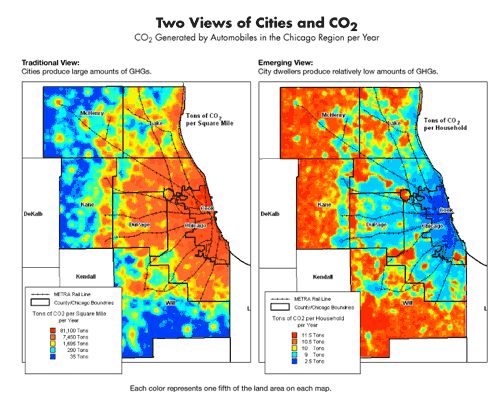In a much discussed speech, ‘A Generational Challenge to Repower America,’ Al Gore challenged America to hit the off-switch on foreign oil and re-power itself with home-grown carbon-free energy– namely wind, solar and geothermal. The predicted outcome Gore said would be a bold, energy independent nation ready to lead the world into the 21st century. However, such an effort, he asserted, would require “commitment to changing not just light bulbs, but laws. And Laws will only change with leadership.”
In a much discussed speech, ‘A Generational Challenge to
Repower America,' Al Gore challenged America to hit the off-switch on
foreign oil and re-power itself with home-grown carbon-free energy– namely wind,
solar and geothermal.
The predicted outcome Gore said would be a bold, energy
independent nation ready to lead the world into the 21st century. However,
such an effort, he asserted, would require "commitment to changing not just
light bulbs, but laws. And Laws will only change with leadership."
If Gore's riff on JFK's ‘generational challenge' (the
man-on-the-Moon speech) is actually met, the former's charge may go down in the
annals of human history as more significant. After all, putting a man on the Moon,
or Mars for that matter seems a bit frivolous these days-unless of course that is
where we all plan to go when the last iceberg melts away.
Certainly Al Gore and Texas
oil man turned wind energy proponent, T. Boone Pickens, deserve respect for their
willingness to lead the way. However, "An Inconvenient Truth," "A
Generational Challenge" and the discourse following this summer's energy/oil
crisis media blitz, neglect a fundamental piece of the climate change puzzle: America's land-use
laws.
For generations American affluence has been manifested in malls,
power centers, residential pods, office parks, mega-schools, and the congested highways
and collector roads that connect them. Long-considered the hallmarks of
free-market prosperity, these energy intensive and car-dependent development
patterns are actually hard-wired by a system of antiquated zoning laws. This ubiquitous framework is usually created
at the local level and mandates a rote separation of land uses. As a result, from
hamlet to city most Americans consume disproportionate amounts of energy and literally
emit tons of CO2 because everything is just so spread out. The next several
generations of Americans will likely eschew our disconnected landscapes of
material comfort, finding them and the laws that created them dysfunctional and
wasteful.

The Center for Neighborhood Technology's diagram at labove, at left depicts tons of CO2 emitted per square
mile in the greater Chicago
area. The diagram at right displays tons of C02 emitted per household. Despite higher total emissions in the core, the second image demonstrates compact urbanism is far more energy efficient than the outlying suburbs.
Municipalities, in an effort to supplant sprawl, have
created tools like zoning overlays, planned-unit development and smart growth
guidelines. Yet, they have had little to no effect because they are
inconsistently grafted upon an already dysfunctional system of land use
control. This prevents what Chris Leinberger calls the ‘option of urbanism.'
That is to say, this broken practice has made illegal some of our greatest
cities-the compact, mixed-use and transit-efficient patterns of places like Chicago, Boston or San Francisco. As you can
see, America's
‘energy crisis' is simultaneously a land-use crisis.
There are no quick and easy solutions to this messy problem,
but an entirely different system is surely needed. The SmartCode, a replicable
and effective form-based model zoning ordinance, is available and, in capable hands, can alter
inefficient "dumb growth" development patterns at the scale of the region on down to the block. It also features supplemental
"plug-ins," which help site everything from wind turbines to community gardens.
And just as conventional suburban codes swept the nation in
the 20th century, so too can the SmartCode become the defacto
operational zoning system for the 21st. It is not a silver bullet,
but those municipalities who have already adopted SmartCode-based ordinances,
like Montgomery, Alabama
or El Paso, Texas, are clearly providing the legal and political leadership Gore so adamantly implores.
In short, a federally mandated, but locally-controlled and implemented
series of SmartCodes would compliment Gore's green energy revolution with one of the most
fundamental human technology there is: the force of law and its ability to generate
desired outcomes. Hundreds of cities and towns moving to a SmartCode based ordinance would, in the long run, drastically cut down on sprawling patterns of land use.
Unlike wind turbines and electric automobiles, nationwide zoning code reform does not yet invoke techno-elegance, nor does it promise direct corporate profit
or political gain for the movers and shakers in Washington. This may explain why none of our political leaders care to understand why everyone
drives so much in the first place, despite the well-known fact that 35-40% of oil consumed in this country is used for transportation.
Regardless, those banging the sustainability drum must consider rewiring the system while simultaneously going to great pains to re-power it.

Planetizen Federal Action Tracker
A weekly monitor of how Trump’s orders and actions are impacting planners and planning in America.

Chicago’s Ghost Rails
Just beneath the surface of the modern city lie the remnants of its expansive early 20th-century streetcar system.

Amtrak Cutting Jobs, Funding to High-Speed Rail
The agency plans to cut 10 percent of its workforce and has confirmed it will not fund new high-speed rail projects.

Ohio Forces Data Centers to Prepay for Power
Utilities are calling on states to hold data center operators responsible for new energy demands to prevent leaving consumers on the hook for their bills.

MARTA CEO Steps Down Amid Citizenship Concerns
MARTA’s board announced Thursday that its chief, who is from Canada, is resigning due to questions about his immigration status.

Silicon Valley ‘Bike Superhighway’ Awarded $14M State Grant
A Caltrans grant brings the 10-mile Central Bikeway project connecting Santa Clara and East San Jose closer to fruition.
Urban Design for Planners 1: Software Tools
This six-course series explores essential urban design concepts using open source software and equips planners with the tools they need to participate fully in the urban design process.
Planning for Universal Design
Learn the tools for implementing Universal Design in planning regulations.
Caltrans
City of Fort Worth
Mpact (founded as Rail~Volution)
City of Camden Redevelopment Agency
City of Astoria
City of Portland
City of Laramie





























